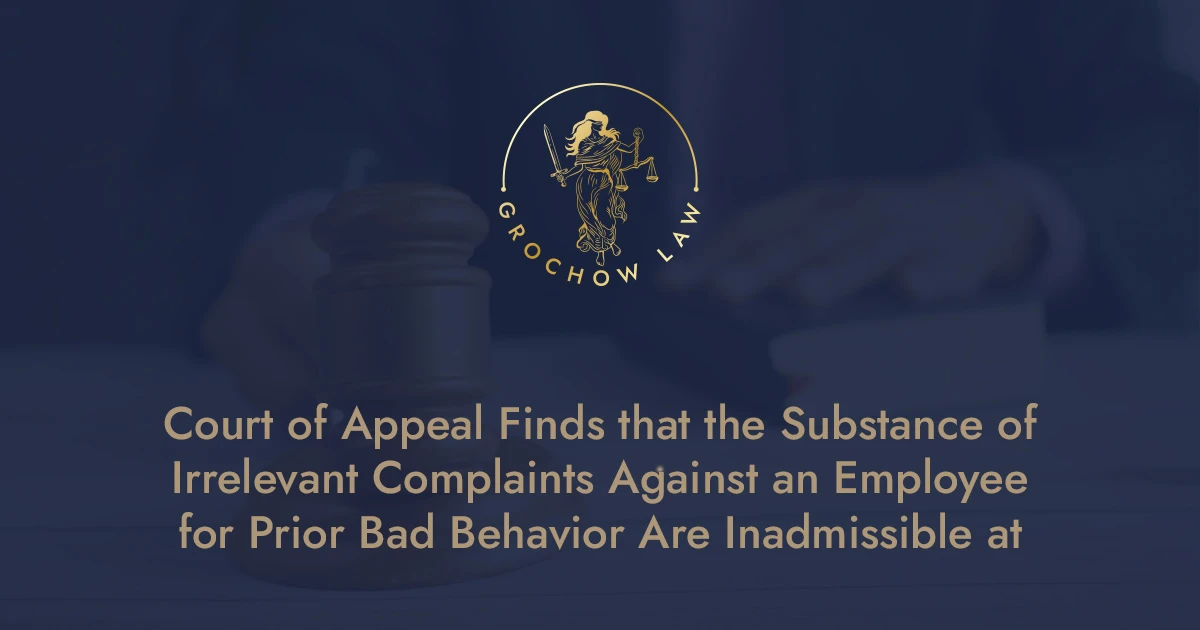The California Court of Appeal in Argueta v. Worldwide Flight Services, Inc., Case No. B306910, ruled that “when the evidence at issue involve prior bad acts, substantial prejudice is inherent in the evidence and its admission requires ‘extremely careful analysis.” In Argueta, the plaintiff sued her former employer, a freight company, for sexual harassment and failure to prevent sexual harassment by her manager under California’s Fair Employment Housing Act. In November 2016 and January 2017, several employees who the plaintiff supervised made written complaints to the employer about the plaintiff, accusing her of bullying, harassment, retaliation, yelling, making threats, and other bad behavior, including discriminating against a pregnant subordinate. After these complaints were made, the employer’s HR director conducted an investigation, during which the plaintiff was informed about the complaints, but it was disputed as to whether the plaintiff was told during that meeting that further action would lead to discipline or termination.
In May 2017, the plaintiff was accused of lying to her supervisor about taking chocolate from a co-worker and was placed on administrative leave by the same manager who had been sexually harassing her. Four days after being placed on leave, the plaintiff submitted a formal written complaint about that manager’s sexual harassment. The employer then launched an investigation into the manager’s conduct. The manager admitted some of his conduct was physical and harassment but disputed that it was sexual in nature. But, based on this admission, the employer issued a letter of concern to that manager.
The plaintiff returned to work in June 2017, but was moved to a different location away from the manager who had harassed her. In February 2018, the plaintiff resigned from her position for lack of advancement and conflicts with her family responsibilities. The harassing manager was terminated in 2019 after three more women complained about him harassing them.
Prior to trial, the plaintiff moved in limine to keep the admission of the accusations of prior bad acts and complaints against her and the documents containing those complaints out of evidence. But the trial court let in all the documents and the substance of the complaints. The jury found for the employer and the plaintiff moved for a new trial. When the court denied her motion, she appealed. The court of appeal agreed that the existence of the complaints was admissible for purposes of demonstrating the employer’s motive, but that he substance of the complaints was inadmissible. It relied on Evidence Code section 352 in finding that the substance of the complaints had little probative value, while being substantially prejudicial to the plaintiff. The court of appeal concluded that the trial court’s limiting instruction, limiting the evidence for the purpose of assessing motive, was insufficient to alleviate the prejudice and reversed the trial court’s denial of the plaintiff’s motion for a new trial.
This post is an advertisement. Any comments provided do not create an attorney-client relationship.

